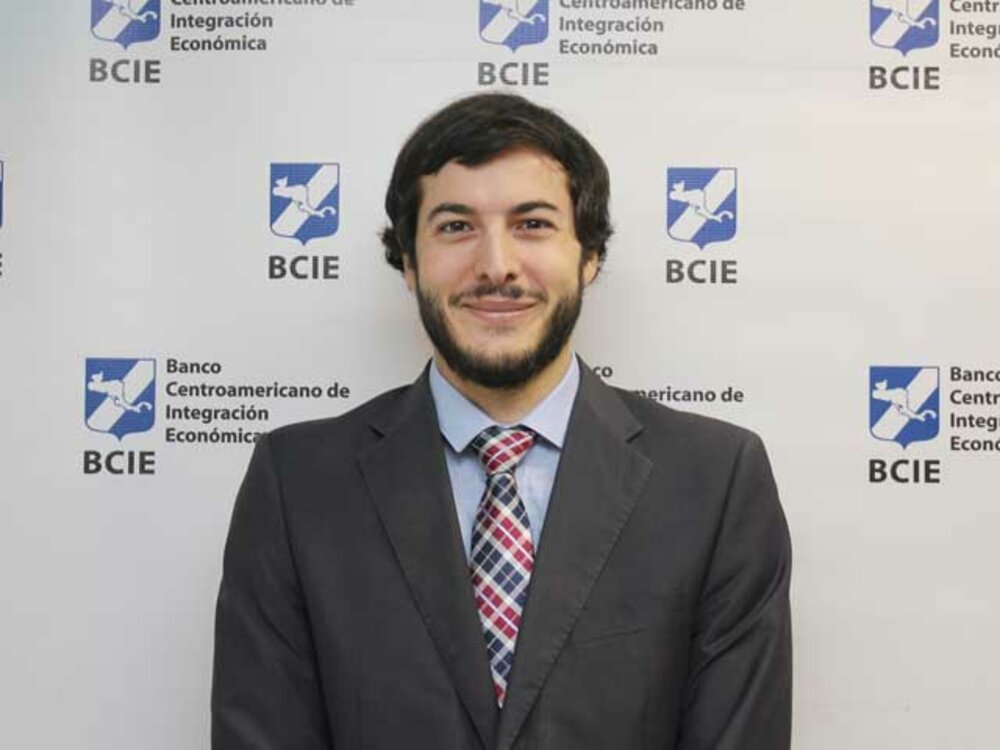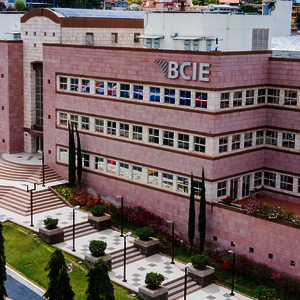Learn about the scope of the ICO-CABEI credit line

CABEI Department of Strategic Alliances Specialist Mr. Alberto Cabezón talked about a number of very useful subjects regarding the scope of this product.
Tegucigalpa, August 1, 2017. - Last March, the Official Credit Institute (ICO) and the Central American Bank for Economic Integration (CABEI) signed a collaboration agreement, which has been made available to companies with Spanish interest in investment projects requiring liquidity and medium and long-term exports in the Central American countries. A global loan of 25 million euros was signed through the ICO-CABEI International Credit Line.
CABEI Department of Strategic Alliances and International Cooperation Specialist Mr. Alberto Cabezón provided an interview regarding the agreement’s scope.
Could you explain the role of CABEI in Central America and mention which countries are members of this institution?
CABEI was founded in 1960 by five Central American countries (Guatemala, El Salvador, Honduras, Nicaragua and Costa Rica). Currently, it has thirteen member countries. In addition to the aforementioned five founding countries, there are eight other members: China Taiwan, Mexico, Argentina, Colombia, Spain, Dominican Republic, Panama and Belize. Likewise, the incorporation of Cuba was recently approved. The Bank aims to promote economic integration and the balanced economic and social development of the Central American region, including founding countries and non-founding regional countries.
CABEI is a multilateral financial institution that mobilizes resources from financial markets and international cooperation entities to attend its clients, including public, private, corporate and financial sectors. Noteworthy products and services offered, which are both banking and non-banking, include loans, co-financing, A/B loans, guarantees, letters of credit, pre-investment and non-reimbursable technical cooperation.
CABEI has achieved a leading position as the main source of multilateral resources for the development of Central America, based on its deep knowledge of the region's development needs and priorities. In this sense, the Bank's value offer is strengthened through aspects such as agility in response times compared to other multilateral organizations, a wide range of programs and financial products that enable customized solutions and clear leadership in such sectors as energy and productive infrastructure.
Furthermore, CABEI has the flexibility to intermediate resources for small enterprises and the ability to finance large-scale high-impact development projects. In particular, the Bank has the largest network of financial intermediaries at the level of the Central American region; more than 100 institutions. In addition, the Institution has a preferred creditor status, which is granted by its members, and a solid financial profile that is reflected in its investment grade risk ratings.
For reasons such as the above, CABEI is a strategic ally for member countries in providing financial solutions that contribute to the generation of employment and raise the wellbeing and quality of life of its citizens.
CABEI recently celebrated its 56 year anniversary. What is the economic impact of CABEI activities in these countries?
In general terms, CABEI’s support to the region during its 56 years of existence has resulted in approvals exceeding US$ 31.71 billion and disbursements surpassing of US$ 25.30 billion. CABEI has provided a significant amount of resources to the region.
This is reflected in the approval of road infrastructure projects for an amount exceeding US$5.81 billion during such period, which have contributed to the generation of more than 4,100 km of paved roads and supported the expansion and reconstruction of more than 6,000 km of roads; together, this represents more than 10.0% of the region's road infrastructure.
With respect to support for the energy sector, CABEI has approved more than US$5.93 billion in projects for the region, which represent more than 45.0% of installed capacity in Central America. The Bank has also disbursed more than US$12.28 billion to projects aimed at promoting micro, small and medium-sized enterprises, education, healthcare services, social housing and productive sectors in the region.
With regard to the agreement signed between CABEI and ICO, it should be noted that both institutions have been committed to the economic and social development of the Central American region for more than 26 years. What are the main benefits for both institutions?
CABEI (as a multilateral development finance institution in the region) and ICO share similar goals and seek to join efforts in order to improve the interventions of both entities in the establishment of economic and social development. One of the reasons is that since 1991 relations of mutual institutional cooperation have been maintained, having channeled an accumulated US$194.3 million through various CABEI interventions and programs; one of its most notable contributions has been the provision of resources to support micro, small and medium-sized enterprises (MSMEs).
Both institutions carry out continuous efforts to find new ways of supporting the Spanish and Central American business sector by adapting their products and services to the specific needs and requirements of the market. In this way, the new ICO-CABEI International Business Support Channel was created to promote the internationalization of Spanish companies towards Central America and of Central American companies towards Spain through the export credit line.
What specific advantages does the ICO-CABEI International Channel Line offer for the internationalization of companies in Central America and Spain?
This ICO-CABEI International Channel was signed with the objective of financing investment projects, working capital, as well as export and import operations, through companies with Spanish interest in the BEI member countries of CABEI.
Likewise, it features the possibility of financing medium and long-term investments under the figures of supplier credit and buyer credit, as well as financing for exports of companies with a registered office outside Spain that procure goods or services from companies with registered offices inside Spain. Eligible operations for this line also include financing to companies with registered offices in Spain that sell goods or services to companies with a registered office outside of Spain.
This instrument for channeling funds for the benefit of the business sector confirms the commitment of CABEI and ICO to the region, and ratifies the importance of the Bank as a leading provider of financial solutions for the development of Central America. Through the line, national and foreign investment is being promoted, as well as initiatives to improve MSME competitiveness. In other words, this credit line will finance viable and profitable investment projects in the region and streamline commercial relationships and opportunities in new markets, which is mutually beneficial for both Spain and Central America.
Another advantage for the client is that they can access this product through the region’s wide network of local banks that have a Global Credit Line with CABEI, which facilitates the process by means of the proximity and attention that commercial banking offers to its customers. In other words, the financing line allows companies with a commercial relationship with Spain to access new financing opportunities in the Central American region.
What role do local banks play in the granting of loans to companies through this Line?
Local banks play a very important role in the promotion, dissemination and development of financial products for MSMEs seeking to boost or diversify the market. Through the ICO-CABEI International Credit Channel, banks have the opportunity to punctually attend Spanish companies or those companies with Spanish interest, considering that this is a financial product aimed at this particular nucleus.
Local banks are the entities that execute the operations of the ICO-CABEI International Line directly with the clients. These banks receive the requests for financing and decide on the approval to clients subsequent to carrying out the corresponding analyzes: feasibility study, measurement of indebtedness capacity and definition of guarantees to require, among others .
Also, as we discussed in the previous question, because commercial banks are the ones that offer this product directly, they can also access ICO and CABEI financing to offer to their clients.
In other words, local banks are in charge of managing the entire administrative process that involves the relationship with the client during the operation’s term, assuming the risk of default. Among the advantages for local banks, it is evident that the Line enables them to attract new clients, as well as offer their current clients a financial product that could be useful to finance investment and liquidity needs, as well as exports in the medium and long-term between Spain and the Central American countries.
Can you give an example of a successful case of CABEI financial intermediation?
I consider the case of Banco de Finanzas (BDF) of Nicaragua to be very interesting because they are always willing to support all clients requiring external resources channeled by CABEI. BDF is an institution that provides opportunities and access to the financial system to more than 300 thousand Nicaraguans.
During recent years, BDF has actively participated in CABEI’s Foreign Trade Programs (COMEX) and Promotion to the Productive Sectors (PROSEP), allowing its clients to access competitive financing conditions with better terms and rates. To put it in perspective, only during 2016, BDF managed to place over US$30 million focused on these programs under CABEI’s authorized line.
Finally, as an added service to companies related to Spain, BDF could offer long-term financing in projects related to the procurement of fixed assets, issues of compliance guarantees, foreign exchange services, consumer loans and passive products, such as checking accounts, savings, term certificates, investment offers in BDF bonds and international payments, among others.




![[Translate to English:] [Translate to English:]](/fileadmin/_processed_/b/8/csm_Web_El_Progreso_2_b98363a150.png)

